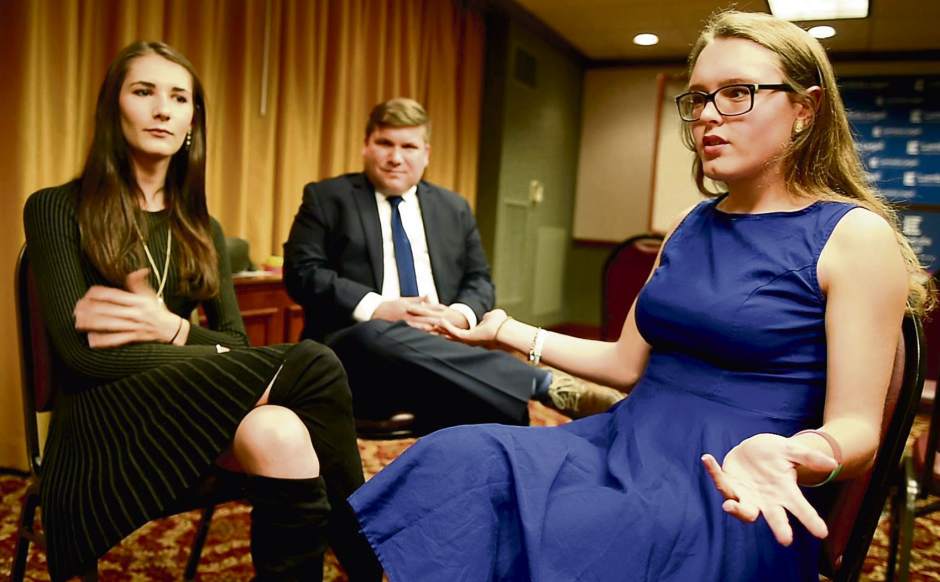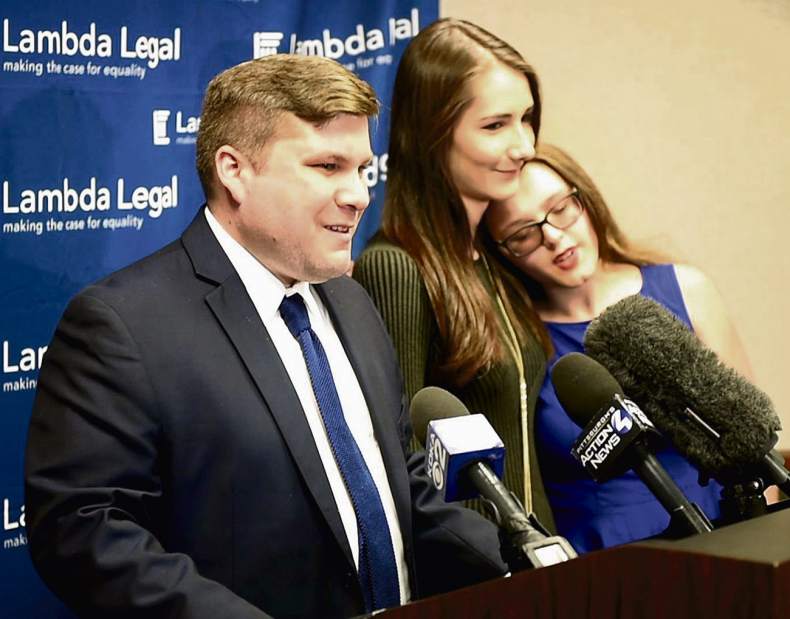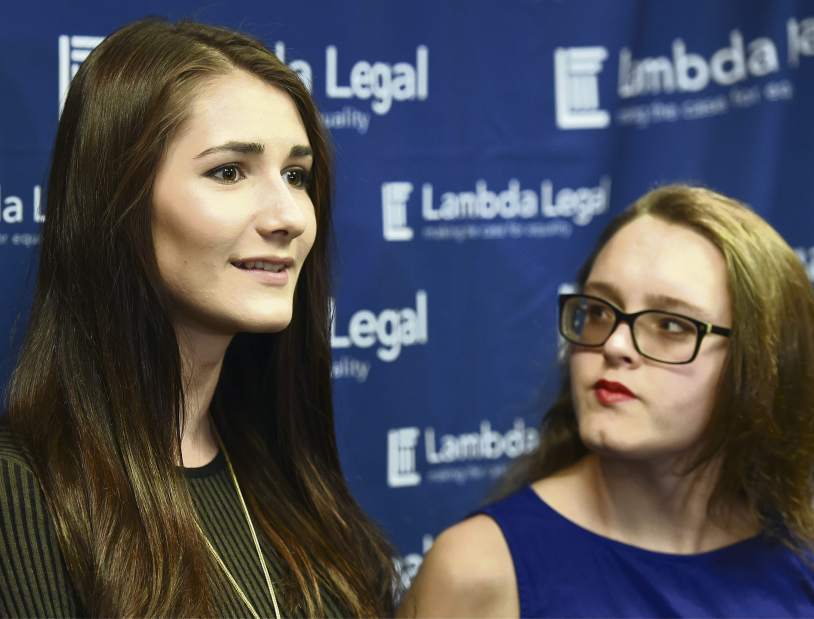Transgender students succeed in nixing Pine-Richland's controversial bathroom policy
Transgender students in the Pine-Richland School District can now use the bathroom that matches their gender identities — a reversal from a controversial rule that thrust the suburban Pittsburgh district into the national spotlight last year.
This week, on a 6-2 vote, Pine-Richland's school board officially rescinded the policy that spurred three transgender students to file a lawsuit alleging the district was violating federal law and causing harm to students.
District spokeswoman Rachel Hathhorn said the school board did its part at a meeting Monday night to agree to a settlement with New York-based Lambda Legal, the pro-LGBTQ rights law firm representing the student plaintiffs.
“Essentially, we got what we wanted,” said Juliet Evancho, 19, one of the students who sued the district in October and recently graduated from Pine-Richland High School. She joined fellow plaintiffs Elissa Ridenour and an anonymous transgender male student identified as A.S. “It's a big step, and it definitely makes me feel a lot happier for the people who are coming after me.”
Settlement appears imminent
The settlement awaits signatures from everyone involved in the case before it's officially filed in court, Lambda Legal attorney Omar Gonzalez-Pagan told the Trib on Friday. He declined to discuss details.
“We're happy that we reached this agreement with the school district that protects trans-students,” Gonzalez-Pagan said, “and we look forward to finalizing it over the next couple of days.”
The mandate enacted last year had required transgender students either to use bathrooms and locker rooms that match their biological sex or to use a separate unisex facility. It stirred a series of lengthy debates among school officials and parents at district meetings and an ensuing uproar from transgender advocates around the country, with Juliet Evancho and her international superstar singer sister Jackie Evancho using the platform to push for a personal meeting with President Trump .
In February, U.S. District Judge Mark Hornak issued a 48-page ruling saying he agreed with the plaintiffs' claims that Pine-Richland's restroom rules could be causing harm to the affected students. He required the district to allow Pine-Richland's students to use the bathroom in line with their chosen identity — not their “assigned” or anatomical sex — while court proceedings continued to play out.
Hornak cited equal protection rights guaranteed by the 14th Amendment and noted that some transgender students had used bathrooms of their choosing for several years before the school board enacted the policy.
Because transgender students suddenly were barred from doing so, “it is not a long leap, nor really a leap at all, to give credence to the plaintiffs' assertions that they subjectively feel marginalized, and objectively are being marginalized, which is causing them genuine distress, anxiety, discomfort and humiliation,” Hornak wrote.
Trans-friendly policy adopted
For students attending Pine-Richland schools in the fall, a portion of the district's nondiscrimination policy now reads:
“A transgender or gender expansive student may request to use a separate non-sex-specific restroom; however, no student shall be required to use an alternative restroom because he or she is transgender. Under no circumstance should any student be required to use sex-specific restrooms that are inconsistent with his or her gender identity.”
Board members Jeffrey Banyas, Therese Dawson, Dennis Sundo, Marc Casciani, Virginia Goebel and Peter Lyons voted to approve the motion.
Banyas said the action recognizes legal realities and “affirms our commitment to accepting transgender students.”
Board members Greg DiTullio and Steven Stegman voted against it.
“The use of children and the elevated emotions surrounding children's issues to advance a cause is revolting to me,” Stegman said at the meeting. “When an adult who cannot formulate a successful argument supported by fact resorts to planting their flag of cause into the hands of children, true cowardice is demonstrated.”
DiTullio said he agreed with Stegman's remarks, adding that he knows of “laws I do not agree with, but they're laws.”
“They're pushed on us because that is the way society works,” DiTullio said. “I do disagree with the way this is happening, but this is unfortunately what is happening.”
The amended policy did not mention locker rooms or dressing rooms.
There does not appear to any language expressly prohibiting or affirming whether transgender students can choose the locker rooms of their choice. School district officials did not return a call Friday asking for clarification on the issue.
Similar cases have popped up around the state and nation following guidance from the Trump administration to disregard Obama-era directives regarding transgender student rights. Under Obama, some districts expressed concerns that they might lose federal funding if their schools did not let children use bathrooms that correspond with their chosen gender identity.
Gonzalez-Pagan of Lambda Legal has said he hopes the Pine-Richland case ultimately sends a message to “any public school that had any questions as to whether they must permit a transgender student to use the restroom that matches who they are” about the importance of “treating (transgender students) with dignity and respect.”
Karen Price is a Tribune-Review contributor. Natasha Lindstrom is a Tribune-Review staff writer. Reach her at 412-380-8514, nlindstrom@tribweb.com or on Twitter @NewsNatasha.



